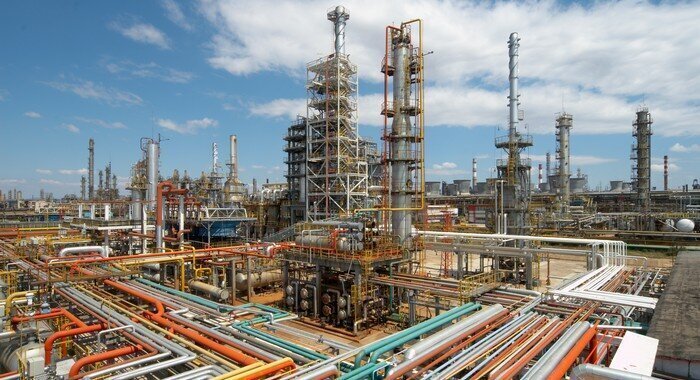Oil Ministry gets green light to build 300,000-bpd petro-refineries

TEHRAN – Based on the national budget bill for the next Iranian calendar year (begins on March 21), Oil Ministry has been authorized to use various resources including private sector and foreign investments to construct petro-refineries with a total capacity of 300,000 barrels per day.
The decision in this regard was announced during a Parliament’s (Majlis) open session on Sunday in which MPs reviewed the government expenditures in the next year’s national budget bill, Shana reported.
The ministry is also allowed to barter crude oil for paying the contractors of the mentioned project.
Earlier in January, Oil Minister Javad Oji said some major domestic banks are going to form a consortium with a total investment capacity of four billion dollars to implement petro-refinery projects across the country.
“A large part of the financial resources required for the implementation of the country's oil projects will be provided with the support of the Ministry of Finance and Economic Affairs, and this includes the financial resources needed for the refining sector as well,” Oji said.
Increasing the country’s petro-refining capacity has recently become a hot topic among Iran’s top research institutions and research centers as a key defense mechanism against the impacts of the U.S. sanctions on the country’s oil industry.
Experts and analysts argue that in addition to generating more revenue, the conversion of crude oil to oil products will have many other benefits including creating new job opportunities, economic prosperity, and reviving other industries. And most importantly, it will lead to a stronger economy that could easily withstand the U.S. pressures.
In this regard, the importance of moving toward the construction of petro-refineries instead of refinery complexes has been emphasized.
Recent studies indicated that the Internal Rate of Return (IRR) of petro-refiners, depending on their configuration, varies from 16 percent to 20 percent, which is 3-4 times more profitable compared to the old refineries and petrochemical complexes.
Back in 2019, the Research Center of Iran’s parliament had said in a report that petro-refineries are two times more profitable than refineries and suggested that National Iranian Oil Company (NIOC)’s new refinery projects should be defined as petro-refineries.
The report dubbed “Petro-refineries, their role in completing the oil value chain and the status in Iran’s oil industry” stated that constructing petro-refineries is one of the most important ways to alleviate severe economic impacts of price fluctuations and achieve a much higher margin of profit.
EF/MA
